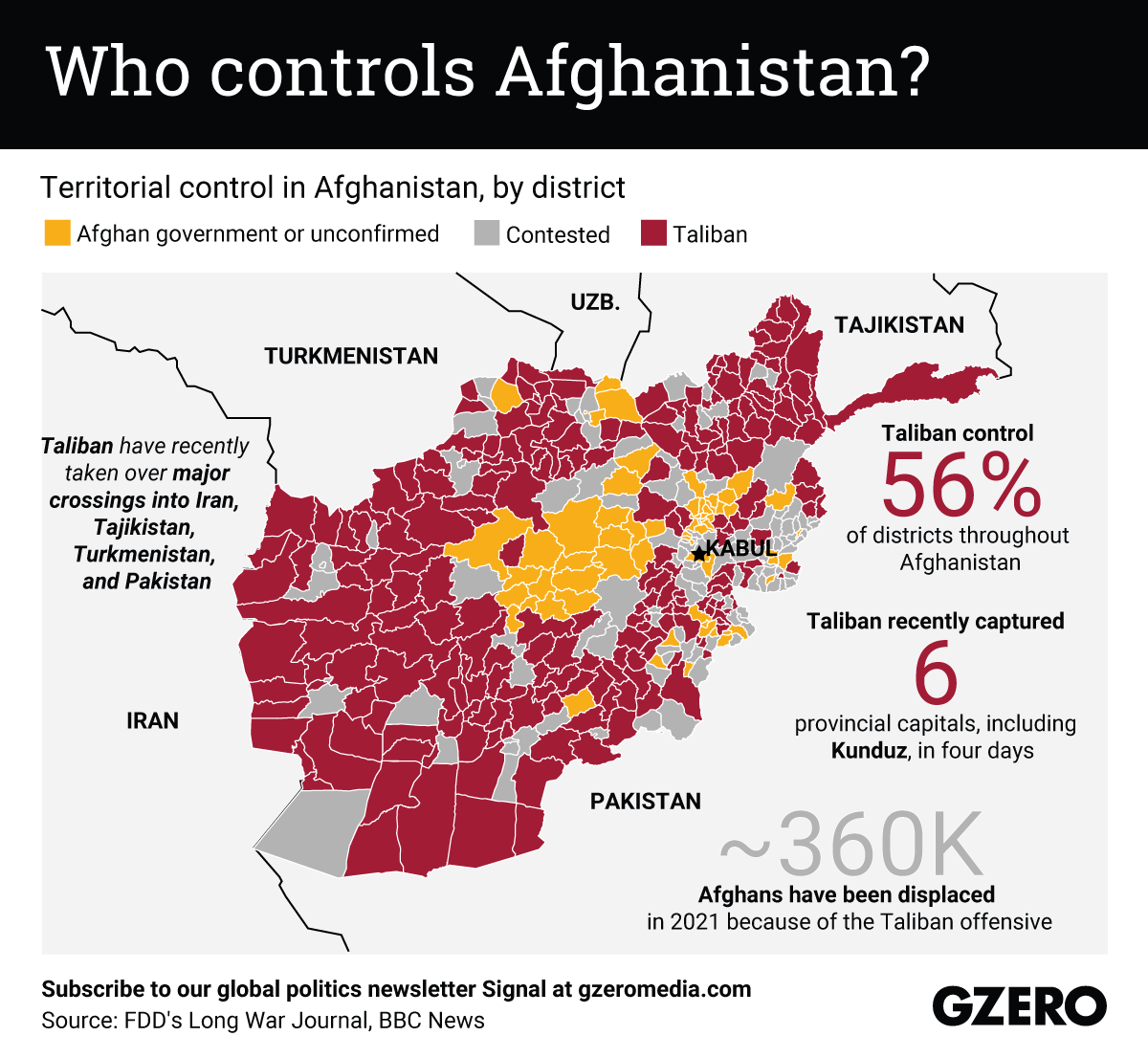August 09, 2021
The Taliban have made massive territorial gains in Afghanistan since the Biden administration announced that it would withdraw all US forces by September of this year. In many instances, Afghan security forces have abandoned their bases and handed over territory rather than confront Taliban fighters directly. Recently, Taliban militants gained control of major crossings, including the Islam Qala crossing between Afghanistan and Iran, which generates $20 million in monthly revenue for the Afghan government, as well as the critical Wesh-Chaman border crossing with Pakistan. With the US withdrawal already more than 90 percent complete, the Taliban already control more than half of all Afghan districts. So as the last few US forces prepare to leave, we take a look at who controls what in Afghanistan. Spoiler: it's a significantly different state of play from when we last mapped it out two years ago.
From Your Site Articles
- Taliban takeover embarrassing for Biden; political impact of wildfires - GZERO Media ›
- What does a Taliban takeover of Afghanistan actually mean? - GZERO Media ›
- The US can advance democracy without being the world's sheriff - GZERO Media ›
- The fallout from US Afghanistan withdrawal: a Marine's perspective - GZERO Media ›
- US Afghanistan withdrawal: a “digital Dunkirk” - GZERO Media ›
- Petraeus on the Afghanistan crisis - GZERO Media ›
More For You
Women prepare a makeshift memorial in tribute to Iran's late Supreme Leader Ayatollah Ali Khamenei on a street, after he was killed in Israeli and U.S. strikes on Saturday, amid the U.S.-Israeli conflict with Iran, in Tehran, Iran, March 4, 2026.
Majid Asgaripour/WANA (West Asia News Agency) via REUTERS
Over the weekend, the United States and Israel pulled off one of the most operationally impressive military campaigns in recent memory.
Most Popular
Sponsored posts
Nuclear is back on the global agenda
What's Good Wednesdays
What’s Good Wednesdays™, March 4, 2026
Walmart sponsored posts
Walmart’s $1 billion investment is strengthening associate careers
- YouTube
In this Quick Take, Ian Bremmer examines what may come next in the US-Israel war with Iran as the Trump administration signals significantly larger military operations ahead.
The conflict in the Persian Gulf is already disrupting shipping in one of the most significant oil and gas-producing regions in the world.
U.S. President Donald Trump, President of the Democratic Republic of the Congo Felix Tshisekedi and President of Rwanda Paul Kagame take part in a signing ceremony at the U.S. Institute of Peace in Washington, D.C., U.S., December 4, 2025.
REUTERS/Kevin Lamarque
6,500: The number of M23 rebels fighting in Congo.
© 2025 GZERO Media. All Rights Reserved | A Eurasia Group media company.
